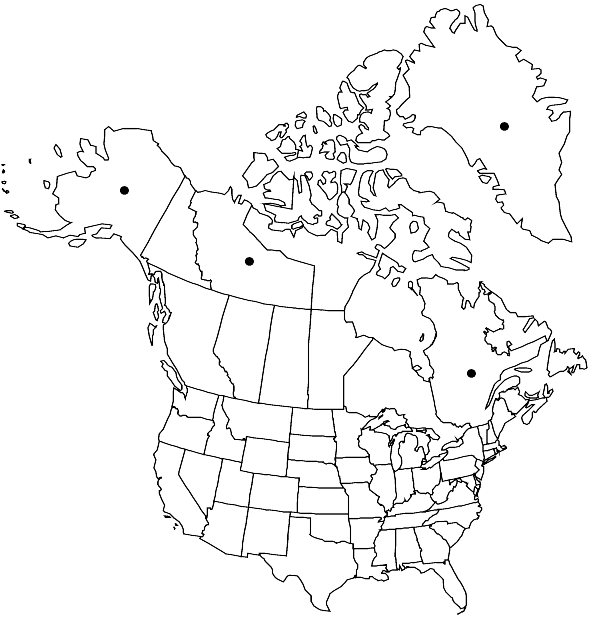Schistidium cryptocarpum
Lindbergia 15: 75, figs. 1, 2. 1990,.
Plants in cushions or low, sometimes extensive tufts, olivaceous or yellowish-brown. Stems 0.8–2.5 cm, central strand distinct. Leaves erect or curved, rarely falcate, imbricate when dry, lanceolate to ovatelanceolate, strongly keeled distally, (0.9–) 1.4–2 (–2.3) mm, 1-stratose; margins usually recurved to just before the apex, proximally often more broadly recurved on one side of leaf, distal 1/3 often plane, smooth, 1-stratose with 2-stratose sections; apices acute or subobtuse; costa excurrent as a denticulate, flexuose, usually strongly decurrent awn, often embracing part of the lamina, smooth; basal marginal cells short-rectangular, occasionally with transverse walls thicker than longitudinal walls; distal cells mainly short-rectangular or quadrate, 7–10 (–11.5) µm wide, smooth, usually strongly sinuose. Sexual condition autoicous. Capsule orangebrown or reddish-brown, campanulate, 0.5–0.6 mm; exothecial cells short-elongate or isodiametric, often more or less quadrate, thin-walled or slightly thickened, small trigones usually present; stomata present; operculum rostrate; peristome rudimentary, consisting of basal segments, or absent, yellowish, papillose. Spores 8–12 µm, verruculose.
Phenology: Capsules mature late spring to early summer.
Habitat: Shallow crevices and cavities on basalt cliffs
Elevation: low to moderate elevations (60-1200 m)
Distribution

Greenland, N.W.T., Que., Alaska.
Discussion
The long, usually strongly decurrent awns and the campanulate capsules absent a distinct peristome separate Schistidium cryptocarpum from other arctic species of the geunus. Mogensen and Blom provided further details on this species. It should be confused only with S. flaccidum, a more southern species, which differs in having a mamillate rostrum and a cupulate capsule.
Selected References
None.